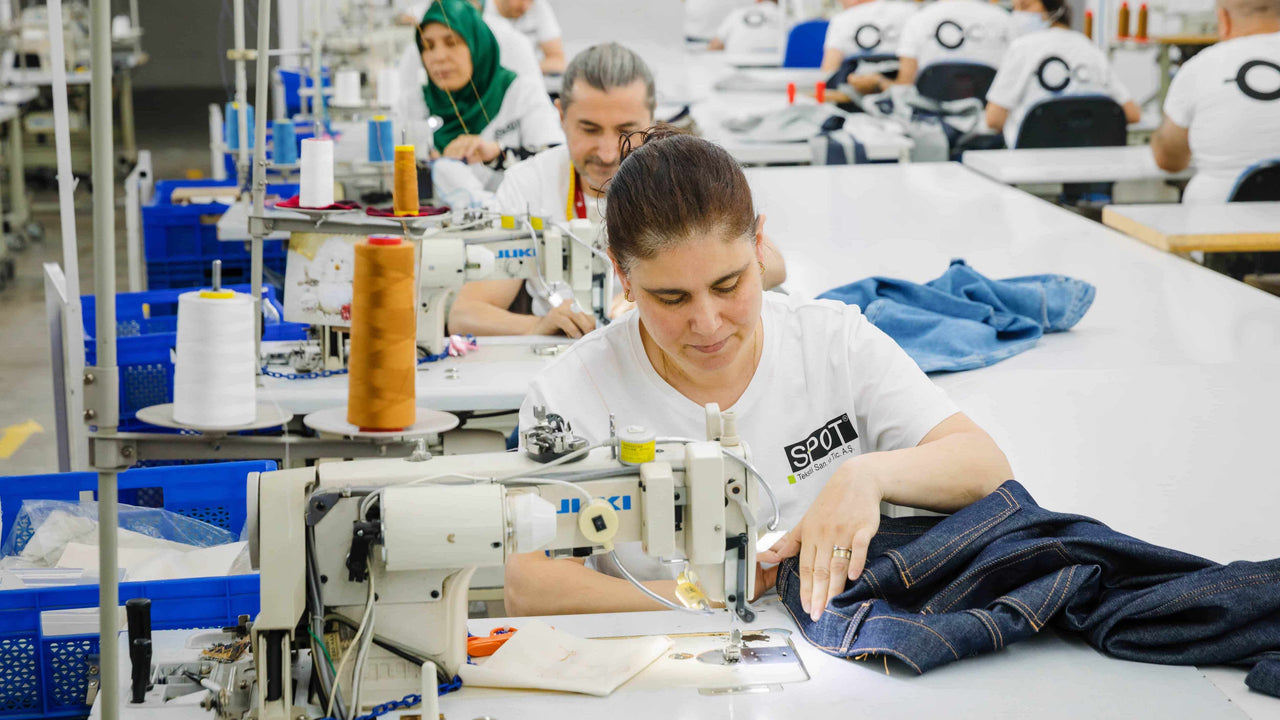
People
Worker Rights and Occupational Health and Safety in our supply chain are the areas that we pay utmost attention to. Our Code of Conduct (the Code), which includes these topics and more, is binding for all units in our chain.
We conduct audits to verify units' compliance with our Code. According to the audit reports, if a unit has minor nonconformities, we implement corrective action plans in the unit. On the other hand, units with major non-conformities cannot take part in our chain.
Environment
We expect our production units to act in accordance with the local environmental laws of the country they are located in and the environmental principles in our Code. We conduct audits to confirm the compliance of the units with our Code and the law.

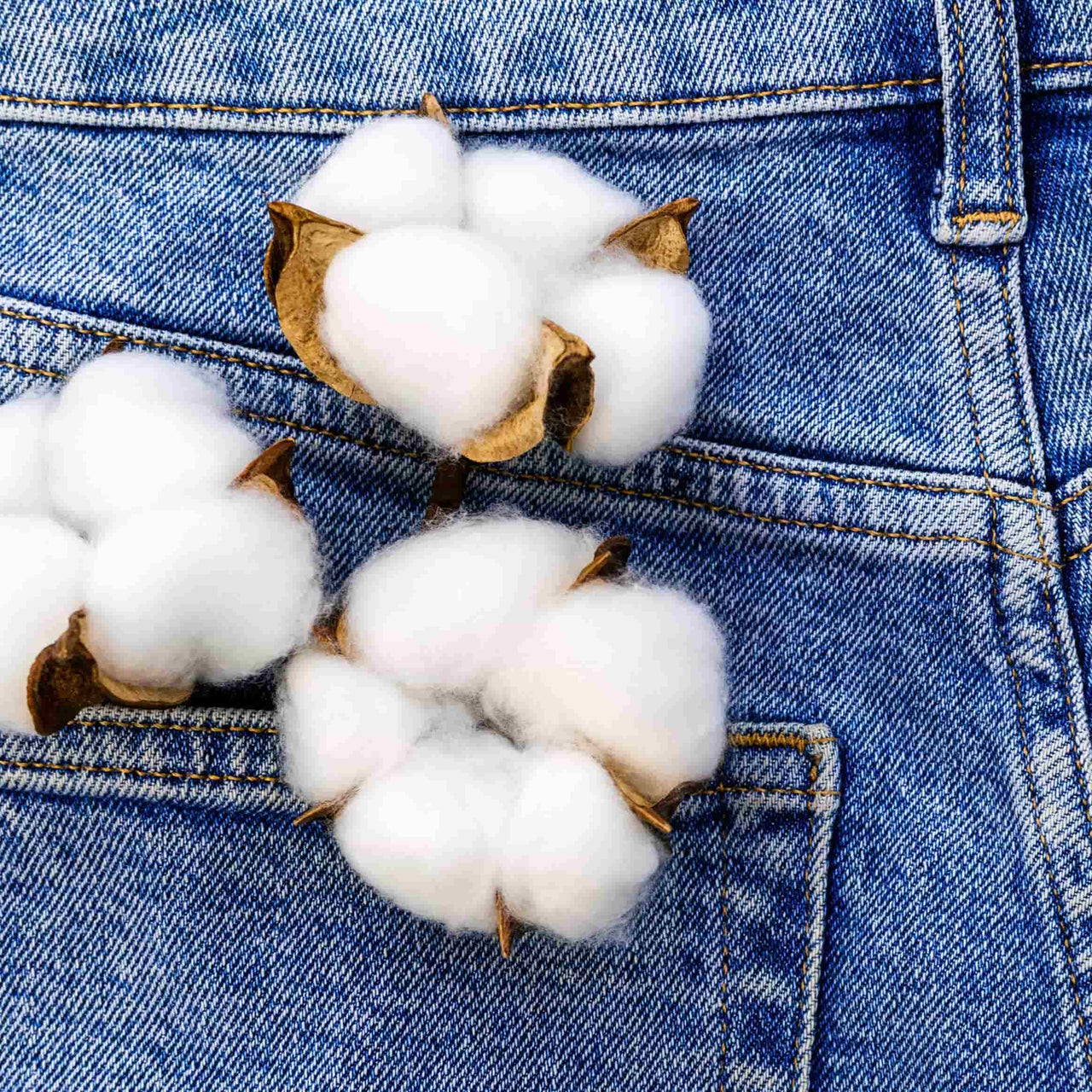
More Sustainable Cotton
Cotton is the main fiber of the garments we produce. It has a ratio of 88% in mass in our total collection according to 2023 production results. We focus on supplying cotton from responsible sources and supporting institutions which aim to transform cotton agriculture.
We follow and accept the Better Cotton Initiative and Textile Exchange standards.
We are a member of the Better Cotton Initiative. Already, 50% of cotton used in our productions in mass has equivalent Better Cotton Calculation Units from Better Cotton Initiative.
You may see the RCS (Recycled Claim Standard) logo on the hangtags of some of our garments. Those garments include cotton from recycled sources with the percentage mentioned on the tag.
GOAL 2025: 70% of cotton used in our production in mass will have equivalent Better Cotton Calculation Units from Better Cotton Initiative
GOAL 2025: 30% of cotton used in our productions in mass will come from recycled or organic sources.
For further info:
https://textileexchange.org/standards/organic-content-standard/
https://textileexchange.org/standards/recycled-claim-standard-global-recycled-standard/
A Case Study: Recycled Pocket Bag Fabric from C.O.J. Denim Production`s Cutting Scraps
You might have already noticed on some of our jeans there is a blueish pocket bag fabric used. This fabric contains 15% of recycled cotton that comes out of our own productions. This was an R&D project at the beginning.
Recycled yarns tend to be less durable under industrial denim finishing processes. The aim of the project was to create a fabric that contained recycled cotton and that is at least as strong as the original fabric which contained only conventional cotton. The result of the project was a success, the final fabric was even stronger than the original.
We scaled up the prototype for bulk.We collected denim cutting scraps from our own productions. Cutting scraps are shredded into fibers in textile recycling facilities. Those fibers are spun as yarns and a pocket bag fabric is woven with those yarns. We are currently using this fabric on some our garments.
More Sustainable Paper
Paper is used to produce labels and packing materials. We focus on reducing the consumption of both per one garment and on supplying paper from renewable or recycled sources. Currently, 60% of paper used in our productions in mass is supplied from FSC or recycled sources.
GOAL 2025: 100% of paper used in our productions in mass will be supplied from FSC or recycled sources.
For further info: https://fsc.org/en
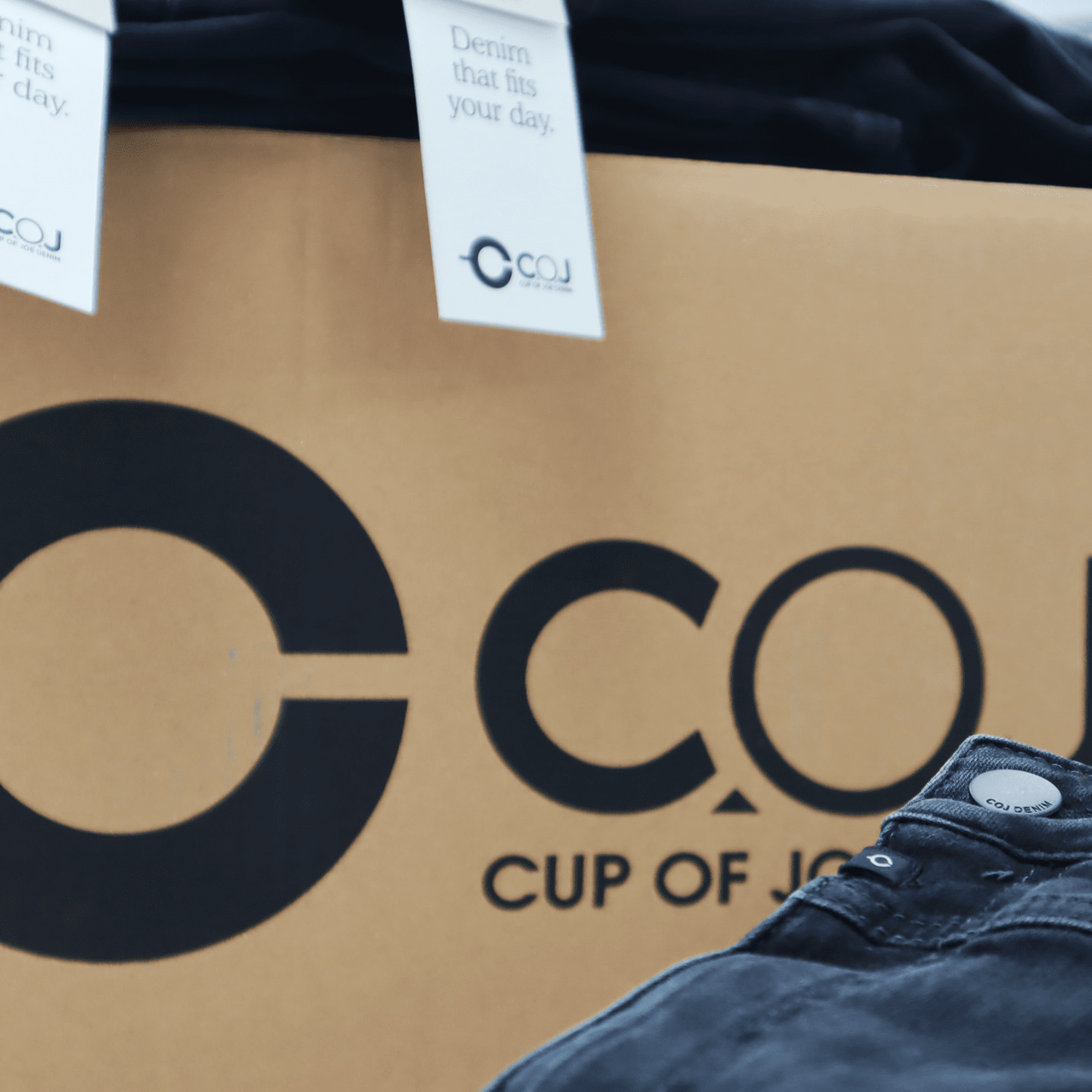
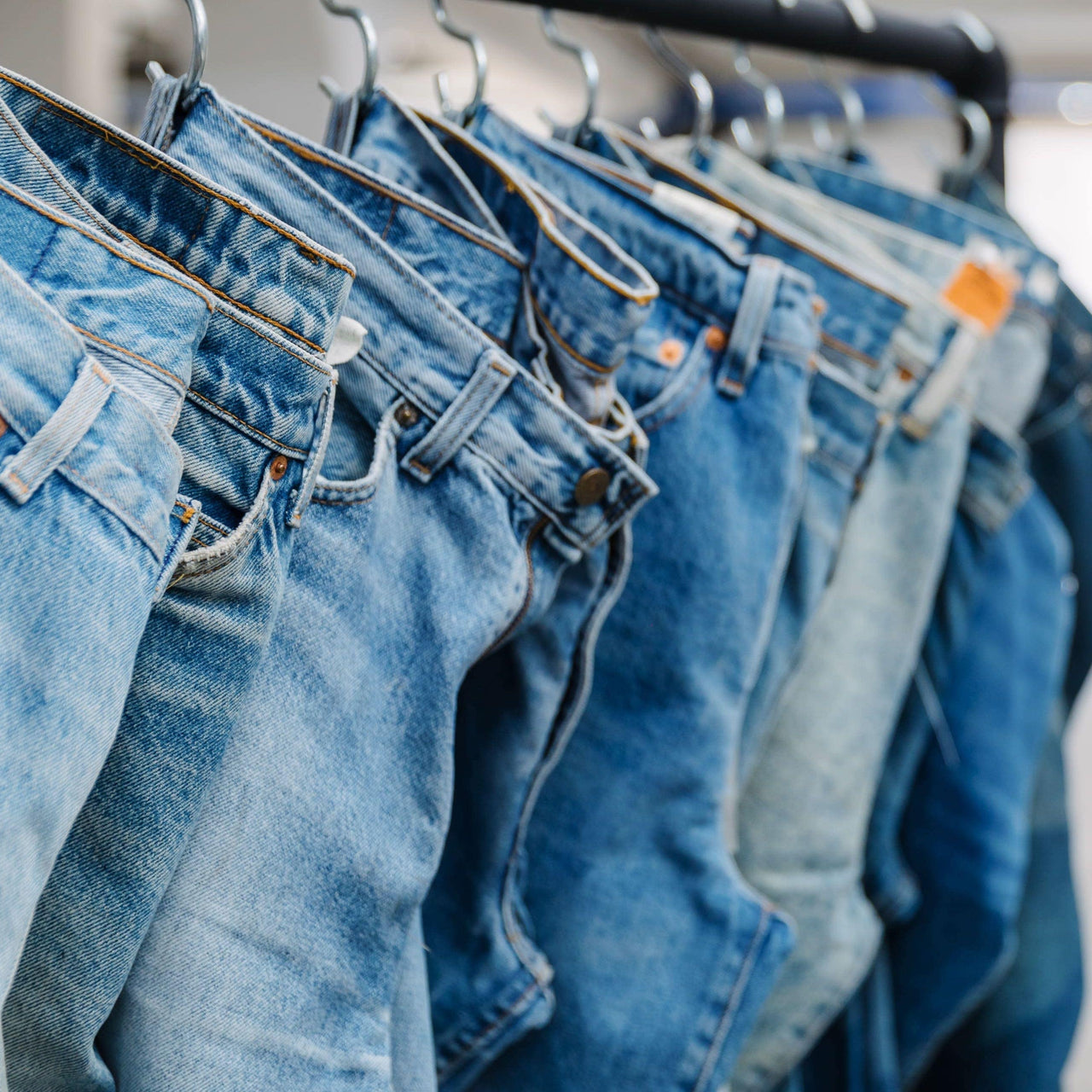
Lower Impact Denim Finishes
Lower Impact Denim Finishes Garment finishing decisions we make during design step have direct influence on the productions` environmental footprints. We use the EIM tool developed by Jeanologia to calculate the environmental impact of the washes we select for our collections. We continue to monitor the impact on bulk production recipes with the tool. Currently, 40% of our products have an EIM score of 33 and lower.
GOAL 2025: 70% of our products will have an EIM score of 33 and lower.
For further info: https://www.jeanologia.com/eim/
Animal Welfare
We believe animals have the right to fair treatment. We only use responsibly sourced leather originating from food production chains.
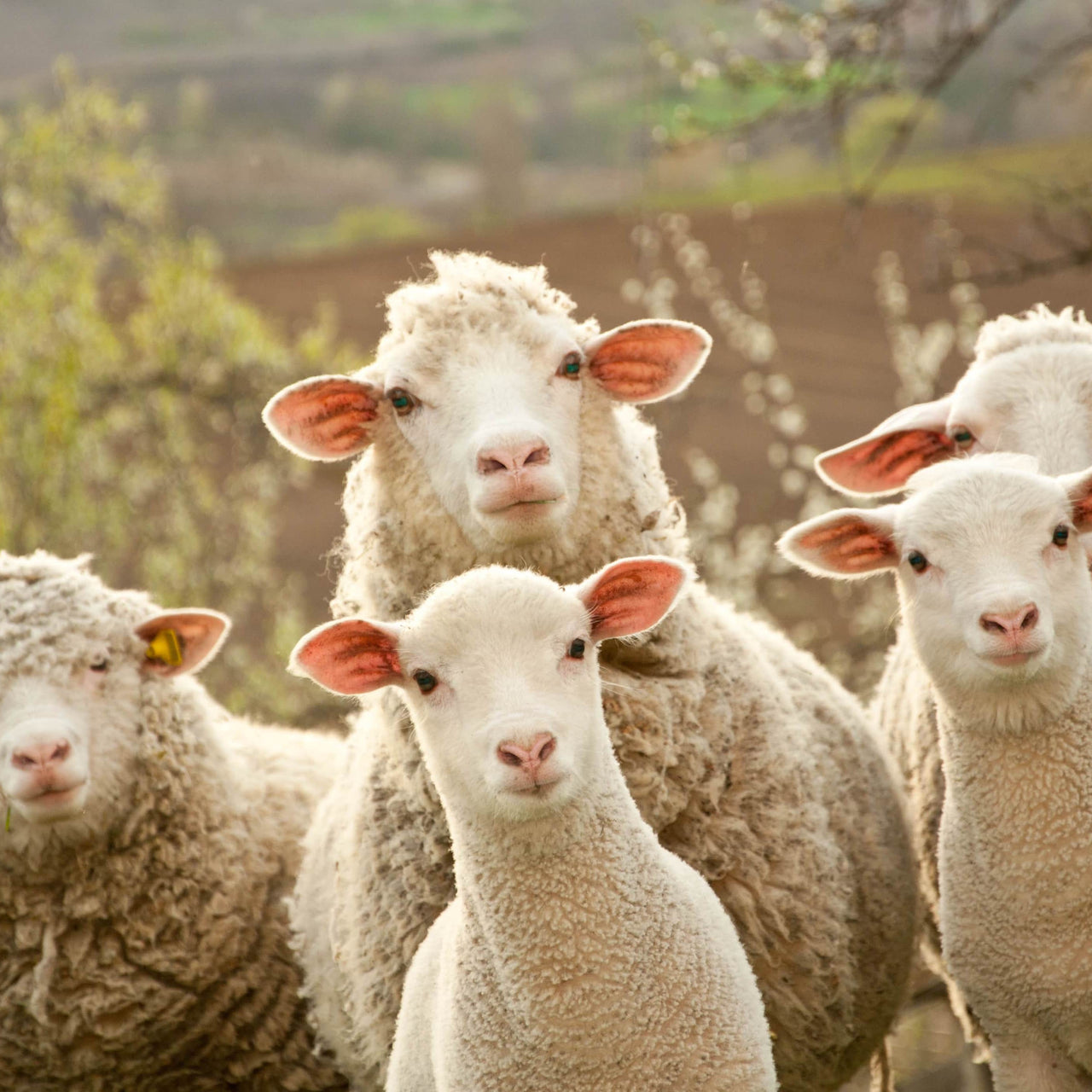
Your wishlist
You have not added any products to your wishlist yet.
Go shopping